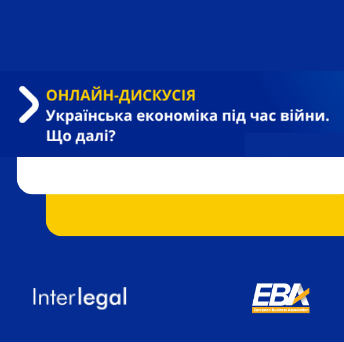Smart Contracts: how the parties should defend themselves
(2).png)
Today, the world faced impact of technological evolution, which affected both management and production processes, as well as new methods of doing business. Such concepts as Cryptocurrency, Blockchain and Smart Contract have merged with routine life of anyone involved in e-commerce and e-business.
In this article, let us try to define what a Smart Contract is and which terms and conditions thereof are crucial.
Smart Contract as a legal agreement
First of all, to define the concept of Smart Contract, it should be noted that there are several approaches to understanding its nature. In this article, let us focus on Smart Contract as a legal contract, since we are trying to explore it in the legal plane.
In this case, the concept of Smart Contract refers to an agreement or elements of an agreement in e-form, while fulfillment of obligations thereunder is automated and provided by a computer program. Therefore, Smart Contract is an agreement between two or more persons aimed to fix, to change or to terminate legal rights and obligations, where part or all of the terms thereof shall be recorded and executed automatically by means of a special computer program.
Based on the above definition, it is obvious that some terms and conditions of the contract can be converted into computer code, i.e. automated, while it may be difficult to convert other terms and conditions into computer code. Following this logic, conditionally we may distinguish several types of terms and conditions for Smart Contracts:
1) terms and conditions that can be converted into computer code: they may be attached to a specific event or period, and if it occurs, the program will have to commit certain pre-programmed actions (for example, debiting funds from the lessee’s account by the lessor as rent on a monthly basis on a certain day);
2) terms and conditions that are impossible or difficult to automate: namely, those that cannot be converted into code, since they contain several evaluative specifications, or the algorithm of actions is difficult/impossible to prescribe. For example, the procedure for determining quality of the goods, the procedure for dispute settlement, the moment of the party’s liability and others.
With regards to specifications of the Smart Contract nature, as well as of realities of Ukrainian legislation, the most secure and convenient mechanism for the parties to enter into Smart Contract will be a standard textual contract with reference to the fact that performance of the contract shall be provided by computer program. In such case, the Smart Contract can be assessed by the court as electronic evidence.
Therefore, a Smart Contract will have to comply with all requirements of the current legislation, including proper form for entering into the contract, checking legal capacity of the parties thereto. Since Smart Contracts can hardly be treated as habitual or typical for perception in the Ukrainian legal environment, it is important to understand that in case of a dispute, the court will assess the contract in terms of its compliance prescribed for this type of contract. We might understand that precondition for validity of a Smart Contract from the aspect of the Ukrainian law will be the transfer of all its terms and conditions into the text of standard legal contract.
What should be set forth in the contract?
First of all, in order to avoid potential disputes in the future regarding validity of the agreement (contract), it is necessary to include therein a condition that the parties shall recognize validity of the concluded Smart Contract, i.e. the parties should agree on how the Smart Contract shall be generated and should recognize that the contract created by such means shall be deemed as valid. It is also important to determine how the parties shall sign the contract.
It is also important to note that, pursuant to Part 1 of Article 7 of the Law of Ukraine “On e-Documents and e-Document Management”, the original e-document shall be an e-copy of the document with mandatory details, including the author’s electronic signature or signature equivalent to his/her handwritten one. Pursuant to provisions of the same Law, electronic signatures in e-document management shall be used by subjects of e-document management on a contractual basis.
Ukrainian legislation defines several types of electronic signatures:
- electronic signature;
- improved electronic signature;
- qualified electronic signature (QES), i.e. electronic signature with a one-time identifier.
The contracts are often signed by means of conventional electronic signature or advanced electronic signature. Advanced electronic signature shall be created by linking user account through phone number or through
email box registered on the platform. As a result, the platform shall generate cryptographic data making it possible to identify a person’s signature with his/her email or phone number.
But only a qualified electronic signature shall have legal force of a handwritten signature.
However the Law of Ukraine “On e-Trust Services” fixes the rule whereunder an electronic signature cannot be invalidated and deprived of the possibility of being treated as evidence under court proceedings solely on the grounds that it has an electronic form or does not comply with requirements to qualified electronic signature or seal.
Also, the Supreme Court of Ukraine under the case No. 524/5556/19 dd. January 12, 2021, has confirmed that e-contract can be entered into not as a separate document signed by QES, but by sharing messages via e-communication (i.e. login and password, filling-in the application, as well as SMS with a one-time identifier shall be deemed as appropriate and acceptable evidence of entering into the contract).
Therefore, if a contract between the parties is not signed by means of qualified electronic signature, this will not entail its invalidity.
However, it is better for the parties to prescribe in the contract in advance that they have agreed that signature fixed in a certain way/by using a certain program shall be equal to a handwritten one.
With regards to the aforesaid, hereby we recommend the following:
1) Smart Contract shall incorporate mandatory term that the parties have agreed on the instrument of generating the contract and shall recognize it as valid;
2) from which moment the contract shall be treated as having entered into force;
3) a term whereunder the method of fixing electronic digital signature chosen by the parties shall be equal to their handwritten signature.
Such three components will eliminate the need in further proving validity of the contract, interpreting the parties’ actual intentions and, in general, wasting efforts on proving the facts in court.
It is also desirable to provide for jurisdiction and applicable law in the Smart Contract. In case of disputes, in the absence of a clause on applicable law in the contract, the rules of private international law will enter into force in order to settle legal conflicts. For its avoidance, the parties can agree in advance on jurisdiction and applicable law and write such a condition in textual format of the contract.
Since Smart Contracts, although they have become familiar tools for facilitating business, have not yet taken root in legal environment and have not developed a unified approach to drafting and interpreting thereof, the best solution would be to prevent a potential problem. If you incorporate in the Smart Contract terms and conditions proposed in this article, you will save both time and money.
Our experienced team of Interlegal specialists is ready to offer their assistance both at the stage of drafting and signing a contract and in case of problems arising during its performance.
(1).png)
Download file...
(2).png) Rising to the challenges of war2023.10.20
Rising to the challenges of war2023.10.20...

Anupam Mittal v Westbridge Ventures II Investment Holdings [2023] SGCA 1 highlights the importance of expressly stating the law governing...
.png)
Structure Are there any particular drivers in your jurisdiction that will determine how a joint venture is structured? ...
(1).png) Release: Shipping nd trade day 20222022.12.22
Release: Shipping nd trade day 20222022.12.2250 countries and 257 delegates: that is Shipping and Trade Day 2022 in a nutshell. Let us highlight our annual conference in detail....

For several weeks, the Ukrainian and world media have been discussing the plan for recovery of Ukraine, as called by journalists and econo...

Odessa businesses, as the Lviv ones, have the most problems with logistics and decreased purchasing power of the population, while the o...

Today, the world faced impact of technological evolution, which affected both management and production processes, as well as new method...

To maintain macroeconomic stability and win this war, all of us need to work together. Ukraine’s economy is suffering colossal losses...
 Ukrainian Legal Alert (17.02.2022)2022.02.17
Ukrainian Legal Alert (17.02.2022)2022.02.17There is a high concern issue on the agenda of the international community these days, which has arisen out of the possible escalation of Uk...





 Odessa, 65014, Ukraine, 1 а, Gretska St
Odessa, 65014, Ukraine, 1 а, Gretska St
